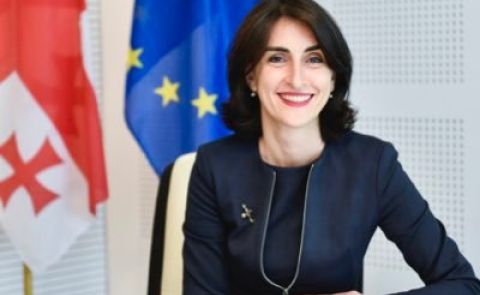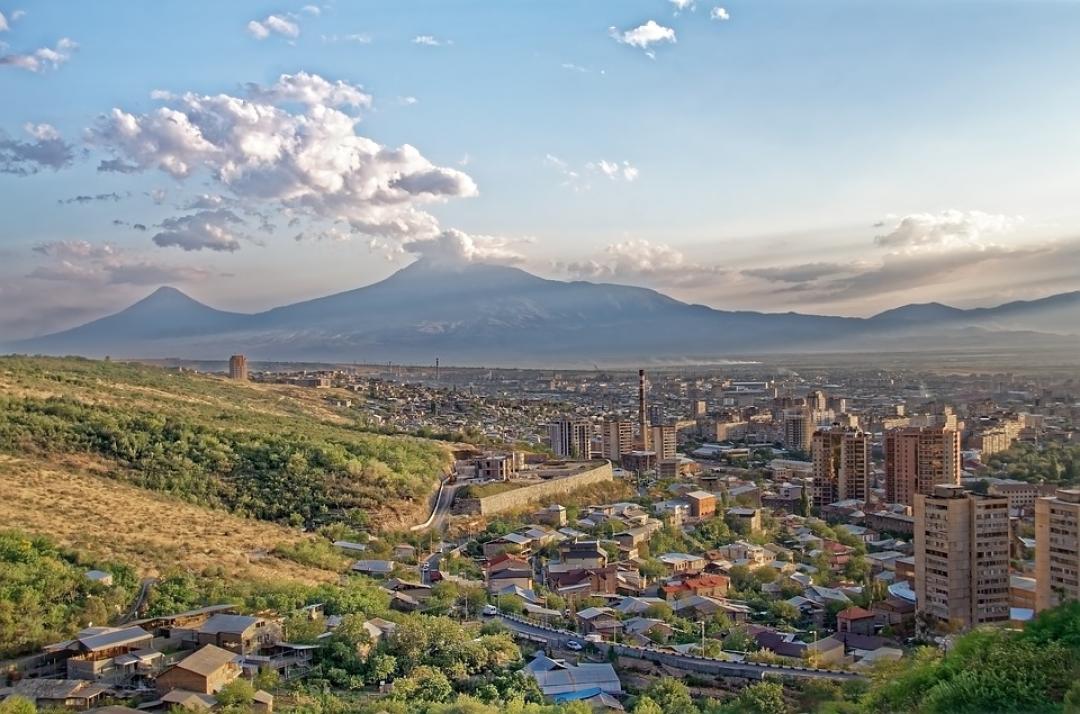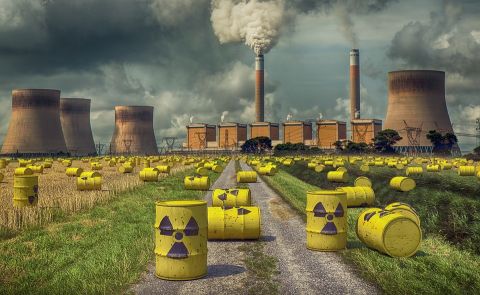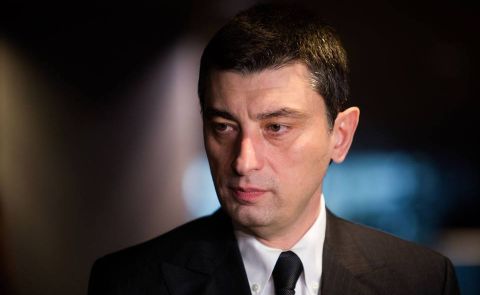
Armenia: One year after the Velvet Revolution

Armenia's "Velvet Revolution" in 2018 was a revolution through which the pressure of peaceful street protests brought about a change of power at the head of state. Whether this change of power will be followed by a fundamental political change - not only in style but also in substance - is still an open question one year later, writes Felix Hett, Head of the South Caucasus Regional Office of the Friedrich Ebert Foundation.
Original source (in German): https://www.frient.de/news/details/news/armenien-ein-jahr-nach-der-samtenen-revolution/
Democratic awakening
With the early parliamentary elections of 9 December 2018, the revolution came to its logical conclusion: Nikol Pashinyan, leader and hero of the street protests and since 8 May 2018 Armenia's Prime Minister of the transitional government, could from thereon rely on a comfortable majority in the National Assembly. The "My Step" party alliance led by him won 88 mandates - enough to change the constitution.
The new parliament is younger, more feminine and more educated than the previous one: 101 out of 132 MPs are in the National Assembly for the first time. 24 percent of the members are women. Instead of the business sector or the corrupt and illicit sectors of society, many new members come from the urban middle class and the organized civil society. If the new National Assembly can play the role of a strong parliament, which should be the case under the constitution of 2015, then there will be opportunities to strengthen the Armenian democracy. Anyhow, it is now the task of a new and young generation of politicians to fundamentally change Armenia's political culture.
Thus the full burden of responsibility lies on their shoulders and those of Pashinyan. According to official figures, over a quarter of Armenia's population lives below the national poverty line i.e. has less than the equivalent of 75 euros a month at its disposal. The registered unemployment rate is at 20 percent. More than a third of the young people are neither in training nor in employment. The shadow economy accounts for over 30 percent of the gross domestic product. The economy of this small country with less than 3 million inhabitants continues to be dominated by the so-called "oligarchs" - business people who have established monopolies in certain branches of the economy and who in the past have exerted considerable influence over politics.
Adding to Armenia's problems is the complex geostrategic situation: squeezed in between its neighbors Azerbaijan and Turkey, with which it has no diplomatic relations, Armenia only has access to world markets via Georgia and through the short border with Iran. The Nagorno-Karabakh conflict, which has not been resolved since the ceasefire in 1994, implies a constant danger of war - and is the cause of high military expenditures: In the "Global Militarization Index" of the Bonn International Center for Conversion (BICC), Armenia is ranked third worldwide.
Confronted with these objectively difficult challenges, the new government and parliament have above all one resource: the trust of the people. In a survey published in November, 82 percent of respondents saw the new government in a positive light, 63 percent expected rapid reforms, and 81 percent were optimistic about the future. In a way, the December election result - over 70 percent of voters voted for "My Step" - is a mortgage for democracy. On a formal level "My Step" dominates politics just as the "Republican Party of Armenia" did, which has been in power since 1999. The deep-seated paternalism of Armenian society, but also the long-established practice of authoritarian top-down government, could lead to old patterns breaking out under new circumstances.
In the election campaigns of autumn 2018, the polarizing friend-enemy rhetoric that Pashinyan and some of his comrades-in-arms used to some extent was a cause for concern. During his time as Prime Minister of the transitional government, Pashinyan has shown that he is not immune to authoritarian attitudes. Among other things, during the election campaign he called on the security services to "take care" of alleged conspiratorial statements by candidates of the "Republicans". The pre-trial detention imposed on ex-president Robert Kocharyan shortly before the elections did not appear to be a coincidence either. Telephone recordings published from unknown sources prove that the Armenian security forces closely coordinated the actions against Kocharyan and other representatives of the old regime with Pashinyan.
Development: Revolutionizing the economy?
At the same time, the popularity of the new government among the people leads to high expectations: rapid, visible and tangible improvements are needed. On the other hand, reform patent recipes for small national economies with the challenges that have been described above are in short supply. So it makes sense to use supposedly simple success formulas: Pashinyan himself presents himself as a post-ideological pragmatist. However, his statements repeatedly show typical neoliberal views. The Prime Minister declared 2019 to be the year of the "economic revolution". This was basically a prescription for a liberalization of entrepreneurial energies from the shackles of bureaucracy. As a consequence, the government apparatus is to be considerably reduced in size through the dissolution of several ministries. The Ministry of Agriculture is also heavily affected by such reforms - a sector in which 40 percent of Armenian employees generate almost one fifth of the gross domestic product. At the same time, Pashinyan described poverty as a mental problem that could be overcome through diligence and effort. This tendency to individualize society's structural problems gives rise to fears that Armenia is on the way to repeat Georgia's neoliberal experiments after the Rose Revolution of 2003.
On the other hand, the electoral alliance "My Step", which supports the new government, is ideologically heterogeneous. Having emerged from a negative coalition against the "ancien régime", the differences between liberal, conservative and social-democrat-oriented deputies will presumably very soon come to light on factual issues. A first test is the tax reform presented by the Pashinyan government, which replaced the progressive income tax by a uniform tax rate of 23 percent ("flat tax"). The expected loss of revenue is to be compensated by an increase in excise duties. This would place the main financing burden of the state on the shoulders of the population. Social democratically oriented supporters of the "Velvet Revolution" rightly ask how this project fits in with the popular revolutionary demand for "love and solidarity". The reform resembles rather a belated electoral gift to the capital's middle class, which was an essential vehicle of the protest movement.
The strong commitment of the new government and the new parliament to discuss the challenges on the basis of "evidence-based politics" gives cause for hope: if decisions are to be made not ideologically but pragmatically and on the basis of facts, this should mark a good starting point for international support for the reform processes. Armenia's "late" revolution in comparison to Georgia, Ukraine or Serbia, if it succeeds, could be an advantage from this point of view because the right conclusions from the reform experiences of comparable countries could be drawn.
Peace: A new detente?
The Damocles sword of the Nagorno-Karabakh conflict continues to hang over all reform efforts. Many observers were surprised by the cautious rapprochement between Armenia and Azerbaijan in the second half of 2018. During the revolution and in his first days as Prime Minister, Pashinyan presented himself as a hardliner on the Karabakh question - presumably in order to refute the suspicions spread by his political opponents that he was a threat to the national security. Pashinyan has not yet moved away from his demand, made in his new office on the first day, that the internationally non-recognized "Republic of Nagorno Karabakh" should also be represented in the peace negotiations. As Prime Minister elected only in Armenia, he could not speak for the Karabakh-Armenians. From this point of view, however, the demand is currently unacceptable for officials in Baku and could effectively block the peace process in the long term.
At several international summits, Pashinyan had the opportunity to meet Azerbaijan's President Ilham Aliyev. Of particular importance was a meeting in Dushanbe in September, at which they agreed to establish a direct communication channel between the two sides. The result was a significant reduction in ceasefire violations at the line of contact between Armenian and Azerbaijani troops. The continuation of this détente policy was declared by the heads of government at a meeting in Vienna on 29 March. The importance of this step should not be underestimated: Whereas in the past years people had already become "accustomed" to about one death per week at the contact line, it is now very clear that victims can be avoided if the political will to do so exists on both sides.
It remains questionable, however, how strong the will to compromise is on both sides. A formula for concluding a peace has been in place for more than 10 years with the OSCE's "Madrid Principles". To give a simplified summary Armenia must give up the occupied territories, which undoubtedly belong to Azerbaijan, in exchange for a new status of Nagorno Karabakh that could fall somewhere between far-reaching autonomy and independence. Three decades after the beginning of the conflict, however, the abandonment of territories is unpopular in Armenian society. The findings probably also apply to the new government, which so far has shown little willingness to jeopardize its popularity. At the same time, the cautious steps towards relaxation should be encouraged by the international community and every opportunity should be taken to broaden the basis of the peace process between the civil societies of both countries. However, there should be no great hopes of a rapid breakthrough towards peace after the democratic upheaval in Armenia.
See Also


Pashinyan: “We Are Not Seeking to End Russian Troop Presence in Armenia”

Russia Begins 24/7 Radiation Monitoring in Dagestan After Iranian Nuclear Incident

How Do Caucasus States React to Israel-Iran War?

Weekly Brief on Military Situation in the South Caucasus (9–15 June 2025)

